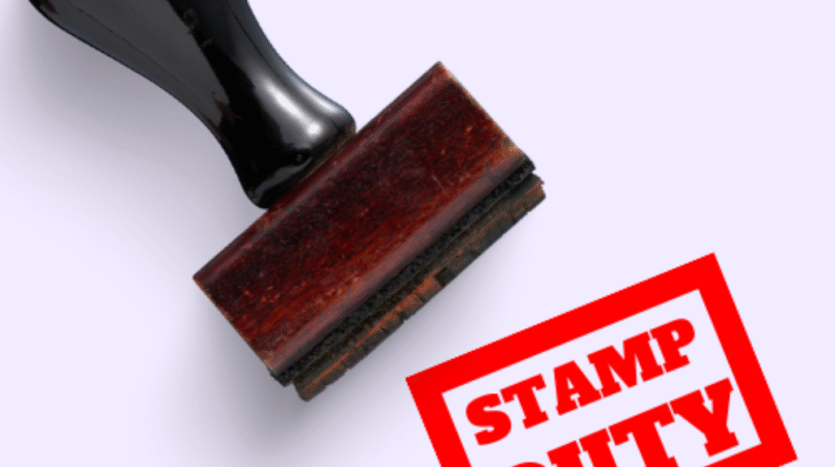Understanding Stamp Duty and Land Rates in Kenya: A Complete Guide (2025)
When purchasing land or property in Kenya, there are two major costs many buyers overlook; stamp duty and land rates. These fees are essential for the legal transfer and ownership of land, and failure to pay them can result in heavy penalties or even loss of property rights.
In this detailed guide, we’ll break down what stamp duty and land rates are, how they are calculated, and what you need to know as a property buyer or investor in Kenya.
What Is Stamp Duty in Kenya?
Stamp duty is a tax imposed on legal documents used in the transfer of property ownership. It’s paid to the Kenya Revenue Authority (KRA) and serves as proof that the government has recognized and approved the transaction.
Essentially, stamp duty is the government’s share in every property sale, ensuring that transfers are transparent, traceable, and legally binding.
Stamp Duty Rates in Kenya
Stamp duty rates vary depending on the location and type of property:
| Property Location | Rate (%) | Example |
|---|---|---|
| Urban Areas | 4% | Land or buildings within towns or cities (e.g., Nairobi, Nakuru, Kisumu) |
| Rural Areas | 2% | Agricultural or upcountry land |
How Stamp Duty Is Calculated
Stamp duty is calculated based on the higher value between:
- The purchase price stated in the Sale Agreement, and
- The current market value determined by a government valuer.
Example:
If you buy land in Nairobi for KSh 5 million and the government valuer assesses it at KSh 5.5 million, the stamp duty will be 4% of 5.5 million = KSh 220,000.
Who Pays Stamp Duty?
In most cases, the buyer pays stamp duty during the property transfer process. This payment is made before registration of the title deed, through the KRA iTax portal.
Your conveyancing lawyer usually handles:
- Submitting the property documents for valuation
- Obtaining the stamp duty assessment
- Making the payment on your behalf
- Getting the official KRA e-stamp receipt, which must be attached to the transfer documents
When and Where to Pay Stamp Duty
Stamp duty must be paid before registration of the transfer at the Lands Registry or on the Ardhisasa platform for Nairobi-based properties.
Payment is made online through KRA iTax and confirmed electronically by both the Ministry of Lands and the Kenya Revenue Authority.
Failure to pay on time can attract penalties and interest, delaying the issuance of your title deed.
Exemptions and Reliefs
Certain property transactions may qualify for stamp duty exemptions, such as:
- Transfers between spouses
- Transfers to registered family trusts
- Inheritance or transfers to beneficiaries under a will
However, exemptions are subject to approval by the Cabinet Secretary for the National Treasury and must be supported by proper documentation.
Understanding Land Rates in Kenya
While stamp duty is a one-time payment during purchase, land rates are recurring annual charges paid to the county government where the land is located. They apply mainly to leasehold properties and help fund local infrastructure such as roads, drainage, and waste management.
How Land Rates Are Calculated
Each county government sets its own rate, typically a small percentage of the unimproved site value (the land value without buildings).
For instance, in Nairobi County, rates may range between 1% and 2% of the site value, depending on the zoning and land use.
Your rates can be checked and paid via:
- County e-services portals (e.g., Nairobi County ePayments)
- eCitizen for counties integrated into the national system
- Physical county offices at the Department of Lands or Revenue
Why Paying Land Rates Is Important
Failing to pay land rates can result in:
- Accrued penalties and interest
- Inability to transfer or sell property
- Legal recovery actions by the county government
- In extreme cases, auction or repossession of land
Before transferring land, always obtain a Rates Clearance Certificate ; a mandatory document confirming all county dues have been settled.
Difference Between Stamp Duty and Land Rates
| Feature | Stamp Duty | Land Rates |
|---|---|---|
| When Paid | One-time during property transfer | Annually |
| Paid To | Kenya Revenue Authority (KRA) | County Government |
| Purpose | Legal recognition of property ownership transfer | Maintenance and development of local infrastructure |
| Applies To | All property sales | Mainly leasehold property within counties |
Tips to Stay Compliant
- Always work with a licensed conveyancing advocate when purchasing land.
- Confirm stamp duty payment through the official KRA e-stamp receipt.
- Regularly check and clear land rates to avoid penalties.
- Before buying land, ask for the Rates Clearance Certificate and the Land Rent Clearance Certificate (for leasehold titles).
- Use Ardhisasa or county portals to verify payment records.
Final Thoughts
Understanding stamp duty and land rates in Kenya is essential for anyone buying or owning property. These payments not only legitimize your ownership but also help keep your land records clean and up to date.
Whether you’re a first-time buyer or a seasoned investor, ensure these obligations are fully met to avoid legal complications later.
At Thuo Gitau Lands Investments, we guide our clients through the entire property acquisition process; from land searches and valuation to stamp duty payment and rates clearance, ensuring your investment is safe, legal, and stress-free.






